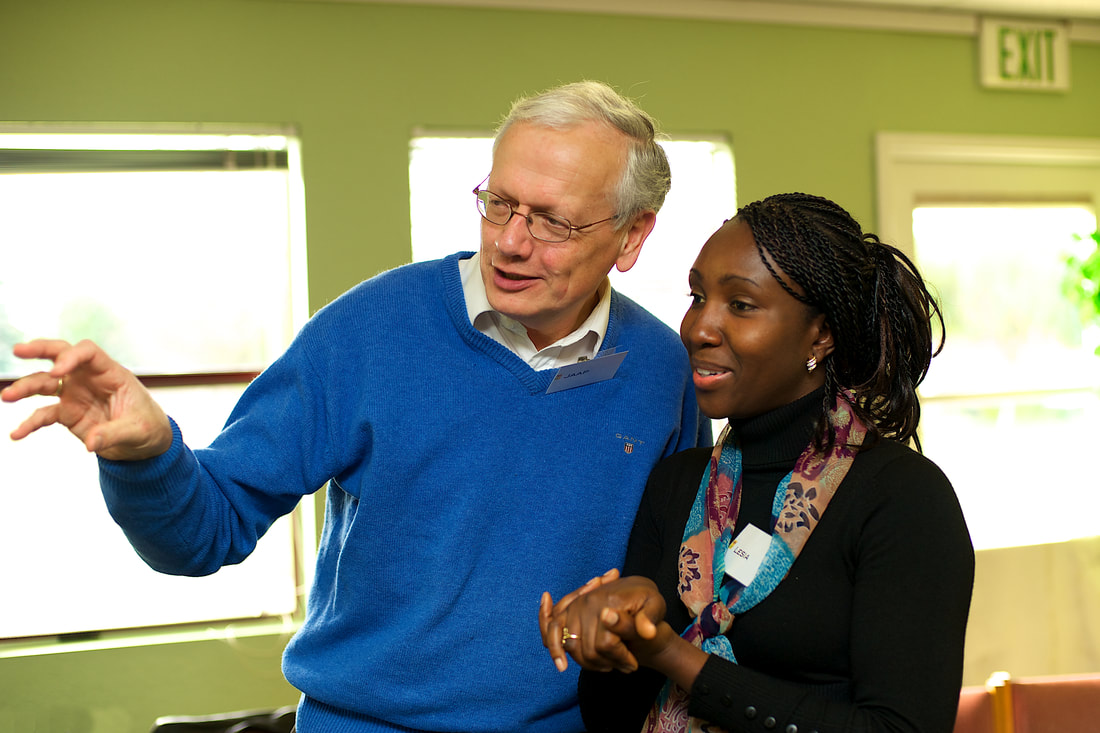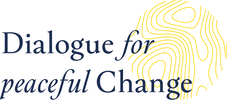 Click herDrawn from a report on DPC to the October 2022 Oikosnet Annual Conference in Malaga Spain It is impossible for me to begin this report without sharing the impact, the huge loss and sadness that the passing of Jaap van der Sar has been for all of us connected with the Dialogue for Peaceful Change [DPC]. Although I was involved in directly shaping the content and conceptual evolution of the DPC methodology, none of this would have happened without the initial inspiration and ongoing support from Jaap and Oikosnet over the last 28 years. Jaap battled with cancer over a number of years. His final battle was with Pancreatic Cancer from which he knew there was little possibility of escape. Jaap lost this battle in March this year. On a personal level I continue to feel his loss most days. He was an amazing colleague, courageous ground breaker, support and above all wonderful friend. Even when we were not working directly on something together, we would speak together most weeks reflecting on our lives, friends and family and the challenges we could see facing the world around us. I carry his voice and wisdom with me every day. However, for those of us who knew Jaap personally, you also know that he had little time for too much sentimentality! I had the honour to visit and talk with him in those last months. He was clear that he wanted us to push on with the work. And we will! As our last report indicated, prior to Covid our work in DPC was focussed on developing a number of potential training proposals. A significant proportion of these conversations were connected to helping some Churches and parishes build up their own internal capacity to use the DPC methodology. These connections included the Lutheran World Federation, The Dutch Reformed Church, and the Presbyterian Church in Baltimore USA. The stresses and strains that Covid caused has meant that, for now, only the Baltimore programme has currently some momentum. We have completed the initial pilot Training of Facilitators programme for both a Baltimore and Washington DC group on the 25th – 29th of May 2022. The feedback from this programme was very positive and we are planning further work in late October or early November this year. With the current political, social, and cultural tensions they are facing regionally and nationally, they feel that the Church does not have the skills in place to constructively work on these issues. This recognition has also been at the heart of our other work with various Churches over the years. The building recognition of this skills gap within the Churches may well be something that we can discuss collectively together on in the Annual Oikosnet Conference in October. Some DPC Evolution and Some Challenges. In recent years the main programmatic development that we have been seeking to evolve with DPC has been to prioritise where possible the building of “DPC Hub Centre’s”. While Jaap and I have been often involved in support and delivering many of the various trainings that have taken place over these years, it was always our expectation and intent that we would build up a cohort of skilled and experienced trainers and DPC coaches. To some degree, at least, we have achieved that goal as there now being 16 Accredited Trainers worldwide. However, what we did not fully recognise for some time, was that, disappointedly, having a range of Trainers scattered across the world did not often facilitate the further development of DPC programmes at their local levels. Many of our Trainers are either working in a “freelance” position or are already quite occupied within another professional setting. This has meant that beyond “open programmes”, they were seldom able to individually establish the capacity to develop their own DPC regional trainings. In discussion with Jaap, we decided to change our approach somewhat. We drew on the capacity building work we had achieved across the city of Antioch in Northern California. Over a 3 -4-year period we trained over 200 facilitators and built a team of 4 accredited trainers. Then through our partnerships in Antioch, we established a ‘DPC Hub’. Our intention had always been to work at building sufficient local capacity for our local trainers to meet the on-going training needs within their local and regional communities. Our work with Fryshuset [a youth NGO in Sweden] has also followed the same path from the outset of our initial trainings. I am delighted to say that we have now built a team of 5 Accredited trainers within Fryshuset and a network of over 100 facilitators. As some will be aware, Sweden has been experiencing some significant inter-community tensions and occasional violence across the diverse migrant and indigenous Swedish community. My own role now is as a consultant/coach for the trainer network. Moving Forward As we know only too well, the challenges that we are facing in the world are intensifying. Alongside the expanding range of social. political and economic problems, the ever-emerging ecological crisis can and will only deepen these tensions. At the heart of the DPC methodology is a recognition that when, we humans, experience an increasing a sense of scarcity or threat of survival then the potential for rivalry, scapegoating and violence will inevitably build. How we each deal with and face into such an unfolding situation inevitably becomes a test of our experience, skills, values, and principles. History would indicate that relying on older cultural certainties will, unfortunately, seldom be likely to serve us well. Jaap and I discussed the dangers of this existential reality on many occasions. To be clear, we have never viewed the DPC methodology as some sort of panacea for such a growing crisis. We do continue to believe that it does nonetheless offers a really useful “toolkit” with which to build up our own personal and collective organisational skills to constructively meet the complexities of our social and ecological world within these emerging and stressful times. Colin Craig 09/08/2022 e to edit. Comments are closed.
|
AuthorReflection articles from various DPC coaches, trainers and facilitators on past trainings and DPC applications. Want to add yours? Please get in touch Archives
November 2022
Categories |
Ready to PRACTICE? |
Have a Question? |
Proudly powered by Weebly

 RSS Feed
RSS Feed